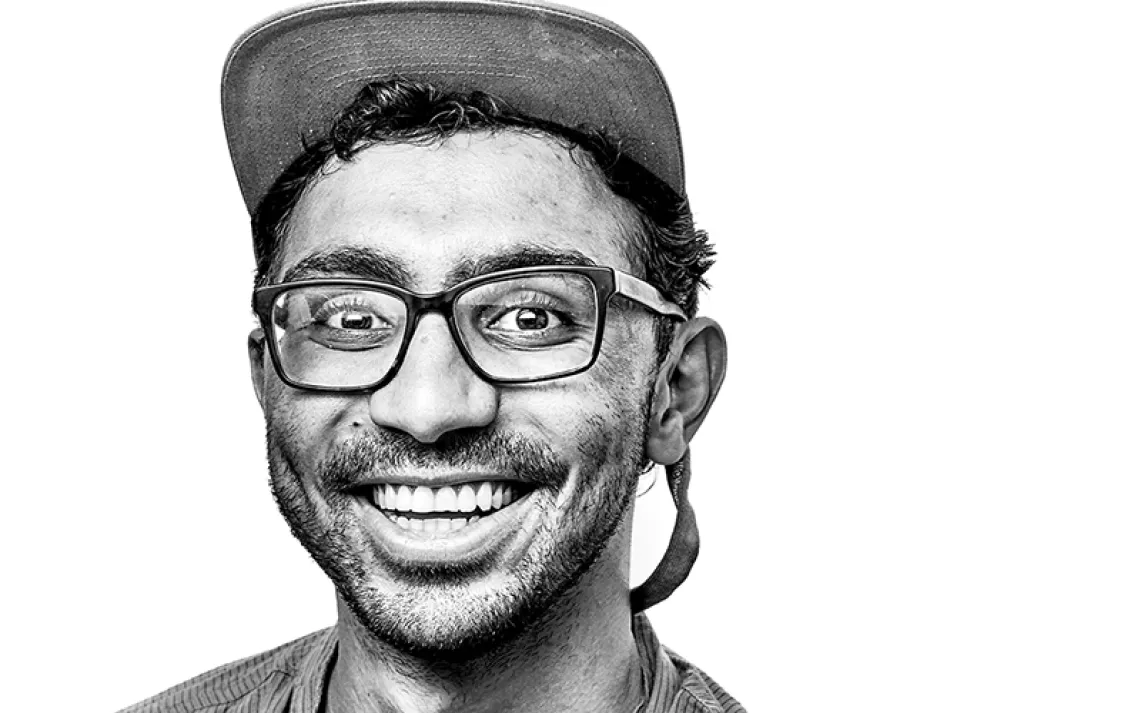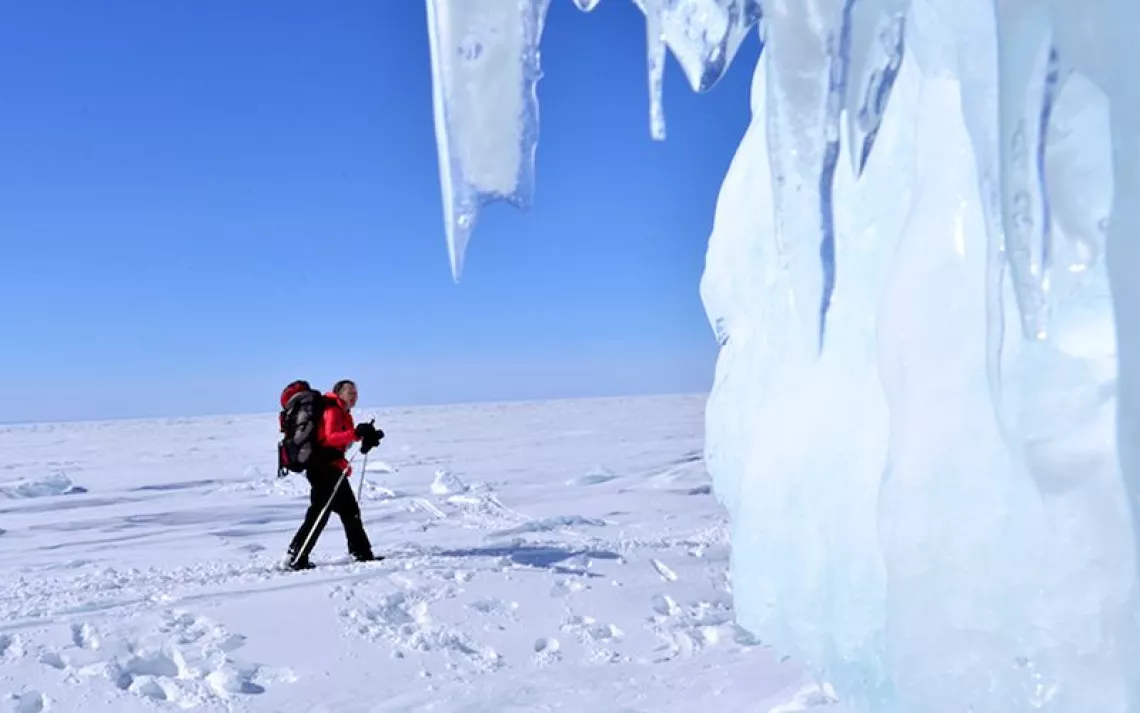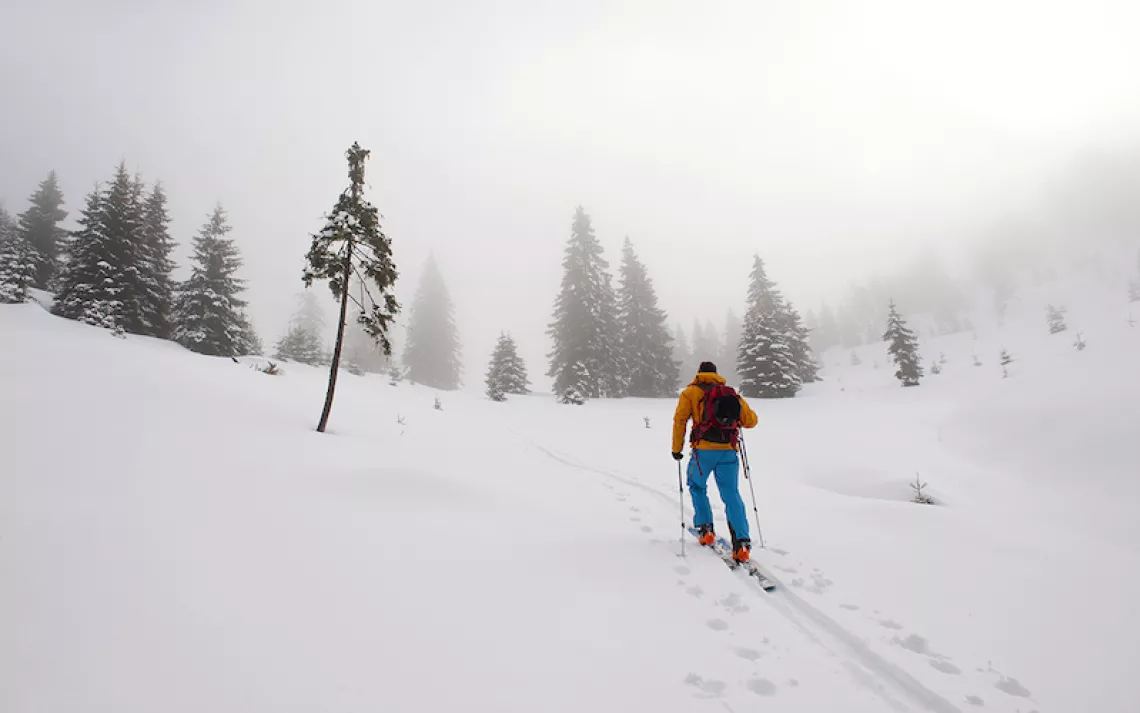How Snowboarding Helped Me Gain a Fuller Sense of My Identity
A Latina writer brings a marginalized perspective to a sport that’s long disregarded marginalized peoples

The author snowboarding in Lake Tahoe, California.
|Photos courtesy of Stephanie Jimenez
On September 1, 2021, I had just sat down to dinner when I heard water rushing onto the floor. I got up, thinking I’d somehow left the shower on, but it was water flooding into my ground-level apartment from the back door. That day, I lost my apartment to Hurricane Ida, and since then, I’ve managed to do something I never thought possible: travel from mountain town to mountain town, learning to snowboard.
With no permanent residence, a writing job I could do remotely, and no interest in hastily moving into another expensive New York City apartment, I booked two long-term Airbnb rentals, one in northern Vermont and the other in Lake Tahoe, California, determined to learn the sport.

Sign up to receive Sierra News & Views
Get articles like this one sent directly to your inbox weekly.
With this action you affirm you want to receive Sierra Club communications and may vote on policy designated by the Sierra Club Board.
I didn't grow up skiing or riding, and at the time my apartment flooded, I had only been snowboarding for a couple of seasons. As a Latina snowboarder who started at the brink of 30 and who youngsters would call “a gray on a tray,” my desire to learn was high. I wanted to prove that an adult body like mine could learn something new, and more importantly, that people of my ethnicity and socioeconomic background have a place on the mountain. Expensive lift tickets and equipment make snowboarding an activity that few can afford to enjoy. And winter sports tend to be white—from the pillowy snow to the people who ride it. In Lake Tahoe, I noticed that women wore their hair divided in two braids under their helmets, à la Swiss beer garden girls. When I tried the same hairstyle, I realized I looked more like a Diego Rivera painting than an Oktoberfest ale slinger. I laughed, thinking of all the ski postcards I’ve passed on sending to friends back home because the skiers depicted always seem to be blond.

But the differences aren’t just aesthetic. Having a brown face at the mountain isn’t solely a matter of representation—it’s about bringing a marginalized perspective to a sport that for so long disregarded marginalized peoples. Standing in a lift line recently, a man interjected when I mentioned “Palisades Mountain” to remind me that it used to be called “Squaw Valley.” When I said it was a good thing that they changed the name, he hesitated before he agreed. I wonder how that conversation would have gone had I told him I thought the name change was unnecessary, or if I looked more like Heidi and less like Diego’s calla lily girls. In any case, I’ve taken to teaching friends and family members how to ride, because our perspectives can help change the culture of the sport.
That doesn’t mean I consider myself a diversity, equity, and inclusion consultant for white skiers and riders on the mountain. When the goggles are on and my helmet is strapped 'round my chin, my awareness of myself as a racial Other often dissolves into the air like a spray of fresh powder, and I’m a rider like anyone else on the slopes. I’m also a writer whose riding has given me a new relationship to the written word. In snowboarding, you’re supposed to “pick a line,” which means you envision where you’re going and direct your board there. But as a novice, sometimes I miss a marker, and at worst, end up stuck in the woods. When I write, I also get lost in the proverbial woods—I’ll pick a plot line and try connecting one scene to the next, only to realize the beats don’t link up, that the storyline is every bit as difficult and unwieldy as a steep, icy run.
No matter how lost I feel, riding always provides a solution, and that’s to follow the example of others. There’s no better way out of the woods than to see how fellow boarders have made their escape. I point the board in the direction where the snow has been flattened and a path has already been made. I gather my writing books and sound advice from instructors and friends, and I go about writing a new scene. Soon, I can see my way out of the woods, and so I soar—through witty pieces of dialogue or sprays of white snow—toward the open trail or an open Word doc.
There are so many lessons to glean from snowboarding. Among them is the lesson that just because this life-affirming sport connects me to the natural world in a way I was lacking in New York City doesn’t mean it’s any good for the environment. From the ski lifts that require massive amounts of electricity to the trail groomers running on gallons of diesel to the creation of fake snow in places already experiencing drought conditions, skiing and snowboarding have an adverse impact on the environment. After losing my apartment to Hurricane Ida, I know how important it is to try to mitigate, or even reverse, the effects of climate change.
This winter season is coming to an end, but next year I intend to recreate more responsibly. To me, that means keeping both equity and sustainability top of mind. Large resorts not only have high environmental costs, but they’re also prohibitively expensive for most people—so expensive that when I invited my friends to ride this winter, they often demurred. Two hundred dollars for a lift ticket is a real barrier to entry, one that keeps too many beginners away from the sport.
But there are places trying to change that. When I was in Vermont, I came across a nonprofit ski area that sold tickets for less than $20 and used a J-bar, a classic tow rope more energy-efficient than an electricity-guzzling gondola. Smaller mountains don’t provide the same experience as bigger ones, but what you lack in runs you might gain in community. For $20, more of my friends might be inclined to learn to ride with me next season. Nothing compares to that feeling of floating down the slopes, the mountains tall around you, reminding you of your brief and fleeting time here on Earth. Being able to share that—to bring people together in our humility and humanity—might be my greatest joy in having learned the sport.
 The Magazine of The Sierra Club
The Magazine of The Sierra Club



